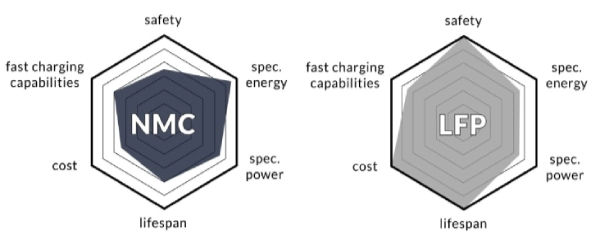What is a Battery Energy Storage System (BESS)?
- girish856
- Jan 8, 2025
- 2 min read
Updated: Jan 21, 2025
In the era of increasing reliance on renewable energy, Battery Energy Storage Systems (BESS) have emerged as pivotal solutions for energy management and sustainability. But what exactly is a BESS, and why is it gaining so much attention?
Understanding Battery Energy Storage Systems
A Battery Energy Storage System (BESS) is a technology designed to store electrical energy in batteries for later use. These systems consist of advanced components, including Battery Management Systems (BMS), inverters, and monitoring systems, that ensure efficient and safe operation. By storing energy, BESS enables users to optimize power usage, stabilize the grid, and support renewable energy integration.
Why Are Energy Storage Solutions Important?
Energy Storage Solutions are essential for addressing the intermittent nature of renewable energy sources like solar and wind. Unlike conventional power generation methods, renewable energy isn’t always available—solar power depends on sunlight, and wind energy varies with wind speeds. BESS ensures a continuous power supply by storing excess energy when production exceeds demand and releasing it during shortages.
Key Benefits of Battery Energy Storage Systems
1. Grid Stability with BESS
Battery Energy Storage Systems play a critical role in grid balancing by smoothing out fluctuations in energy supply and demand. They help maintain grid stability, especially in regions with high renewable energy penetration.
2. Peak Shaving with BESS
Businesses and utilities use BESS for peak shaving—reducing electricity consumption during peak demand periods. This not only lowers energy costs but also alleviates stress on the grid.
3. Renewable Energy Storage
BESS enhances the viability of renewable energy projects by providing a reliable storage solution. For instance, Solar Energy Storage and Wind Energy Storage Systems ensure that clean energy is available around the clock.
4. Backup Power
BESS provides reliable backup power during outages, ensuring uninterrupted operations for homes, businesses, and critical infrastructure.
5. Load Shifting
By storing energy during off-peak hours and discharging it during peak demand, BESS enables load shifting, helping balance energy supply and demand while reducing costs.
6. Improving Generator Fuel Efficiency
BESS can work alongside generators to improve fuel efficiency. By reducing the generator's runtime and optimizing energy usage, BESS helps lower fuel consumption and operating costs.
Lithium-Ion Batteries: The Backbone of BESS
Lithium-Ion Batteries for Energy Storage dominate the market due to their high energy density, efficiency, and long cycle life. These batteries are at the heart of most BESS solutions, offering reliable performance and scalability for diverse energy storage needs.
The Future of Energy Storage
The global demand for Battery Energy Storage Systems is expected to grow exponentially as renewable energy adoption accelerates. With advancements in battery technology and innovations in Battery Management Systems, BESS is set to become even more efficient and cost-effective, driving the clean energy revolution forward.
Conclusion
Battery Energy Storage Systems are transforming the energy landscape by enabling renewable energy storage, grid stability, and energy cost savings. Whether it’s supporting solar and wind energy projects or enhancing grid resilience, BESS is a critical component of modern energy infrastructure. As the world moves toward a sustainable future, the role of BESS will only grow in significance, paving the way for cleaner, greener energy solutions.




